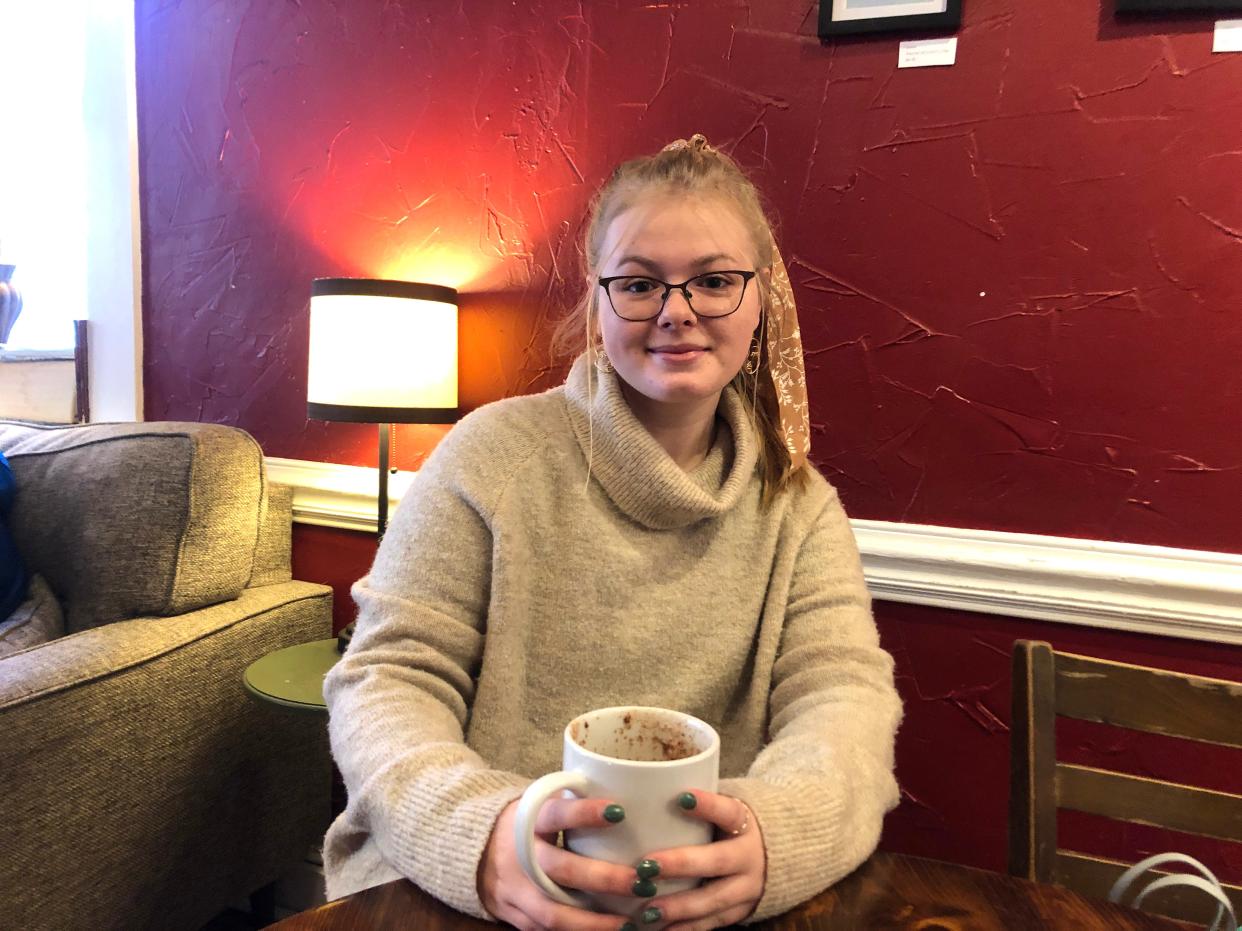Human trafficking: Mary Baldwin senior provides education on issue through new documentary

STAUNTON — Kaitlyn Savage wants to bring awareness to what she believes is a major problem in the United States and around the world — human trafficking.
According to the Organization for World Peace, while statistics vary, by some estimates there are up to 300,000 individuals trafficked each year in the United States.
The Mary Baldwin University senior and graduate of Staunton High School applied for and won a $1,000 grant to use for a research project of her choice. Savage knew she wanted to do a documentary to help bring awareness to the issue of human trafficking.
This past summer she worked for a Freedom 4/24, a nonprofit organization based in Lynchburg and focused on that very issue.
According to the organization’s website, human trafficking is a “form of modern day slavery involving the commercial exploitation of vulnerable women, men and children through force, coercion or deception.” The organization said that while human trafficking includes all forced labor, a vast majority of victims are sold for sex.
Savage wanted to find out why Virginia hasn’t passed effective anti-trafficking legislation. She said the state is behind many others in this area.
“My hypothesis was that there’s a lack of education amongst legislators that deters them from being proactive in the anti-trafficking war,” said Savage, an international affairs and political science major.
She interviewed 14 individuals, including current members of Virginia’s House of Delegates. She used her interviews to write her senior thesis and then the recorded interviews that she had done on Zoom to create a documentary for her honors thesis. The documentary is titled “Unveiling Human Trafficking: A Call to Action" and is available to view on YouTube.
“There’s a lot of misconceptions,” she said. “It’s not the kidnapping version, it’s not like the movie ‘Taken.' It’s relationships and grooming tactics.”
Savage said many times the grooming begins through social media when an older person compliments a photo of a minor. That makes the minor feel good that someone is paying attention to them and the two begin a conversation.
Patrick McKenna with the Virginia Coalition Against Human Trafficking told Savage for her documentary that it's mostly an exploitation of some vulnerability. Maybe a minor posts on social media that they had a fight with their parents. Or they don't feel attractive enough. Or maybe they post a video of them singing.
The trafficker come along and tells the minor that he understands what it's like to fight with parents or that she's beautiful or they have a great singing voice.
"That vulnerability ... that need or that desire that somebody uses for their purposes in order to somehow profit for themselves," McKenna said.
Sometimes it feels like a romantic relationship for the minor, but is simply a tactic for the trafficker to make a connection.
The legislators she spoke with, even if they didn’t have a firm understanding of the issue, were willing to listen and learn, Savage said.
“We just need to education people,” Savage said. “That’s the purpose of the documentary. I just want a lot of people to watch it.”
Karrie Delaney, who represents Virginia's 67th District in the House of Delegate, told Savage that a lot of people don't realize human trafficking happens in the United States.
"They think about something happening in other countries, in developing nations," she said.
One of the people Savage spoke with is former delegate Chris Saxman. He told Savage that a lot of times bills on this topic don’t gain traction simply because of politics. The growing divide between the two political parties means they just won’t cooperate even if the subject isn’t inherently a political one. That surprised Savage, and it’s a topic she wants to explore further.
Savage said one word that kept coming up in her interviews was “community.” There’s a need for law enforcement officers, educators, attorneys and legislators to all work together. Getting all groups on the same page is an important part of getting and enforcing effective legislation.
She said Virginia was the last state to pass legislation defining sex trafficking. Virginia also doesn’t have safe harbor laws preventing minors from being prosecuted for prostitution. Often the victims are criminalized for things they were forced to do.
What Savage found through her research is that Virginia is lacking in these areas of law simply because of a lack of education as well as a belief by some that it’s just not a problem in Virginia.
“It’s easier if it’s out of sight, out of mind,” said Savage, who hopes her documentary will help bring light to the subject.
“The more people are aware,” she said, “the more people can prevent it.”
More: What's coming to Waynesboro: Wine bar, marketplace, smoothies — The buzz
More: Newsmaker Marisela Figueroa Gomez: Helping ESL students adjust to Augusta County Schools
Patrick Hite is The News Leader's education and sports reporter. Story ideas and tips always welcome. Contact Patrick (he/him/his) at phite@newsleader.com and follow him on Twitter @Patrick_Hite. Subscribe to us at newsleader.com.
This article originally appeared on Staunton News Leader: Human trafficking documentary produced by Mary Baldwin senior

